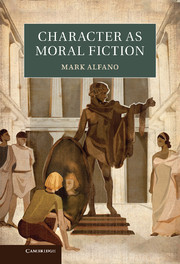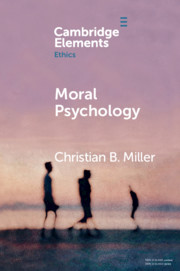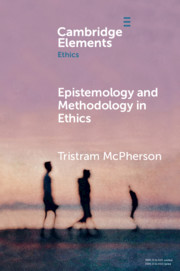Character as Moral Fiction
$120.00 (C)
- Author: Mark Alfano, Princeton University, New Jersey
- Date Published: April 2013
- availability: Available
- format: Hardback
- isbn: 9781107026728
$
120.00
(C)
Hardback
Other available formats:
Paperback, eBook
Looking for an examination copy?
This title is not currently available for examination. However, if you are interested in the title for your course we can consider offering an examination copy. To register your interest please contact [email protected] providing details of the course you are teaching.
-
Everyone wants to be virtuous, but recent psychological investigations suggest that this may not be possible. Mark Alfano challenges this theory and asks, not whether character is empirically adequate, but what characters human beings could have and develop. Although psychology suggests that most people do not have robust character traits such as courage, honesty and open-mindedness, Alfano argues that we have reason to attribute these virtues to people because such attributions function as self-fulfilling prophecies – children become more studious if they are told that they are hard-working and adults become more generous if they are told that they are generous. He argues that we should think of virtue and character as social constructs: there is no such thing as virtue without social reinforcement. His original and provocative book will interest a wide range of readers in contemporary ethics, epistemology, moral psychology and empirically informed philosophy.
Read more- Extends the situationist challenge from virtue ethics to virtue epistemology
- Introduces and interprets a wealth of studies from behavioral and experimental economics
- Includes broad discussion of contemporary empirical results in psychology
Reviews & endorsements
"The 'character wars' that have unsettled moral philosophy for the past decade or so have resulted not in scorched earth, but in fertile ground, nurturing a genuinely interdisciplinary study of character, drawing researchers with both scientific and philosophical training, and developing insights from both psychology and ethics. Among the most imaginative and provocative contributions to this burgeoning field is Mark Alfano's Character as Moral Fiction. If you work in the area, Alfano's book is a mandatory read; if you're wondering about it, this is where you should start."
John Doris, Washington University in St LouisSee more reviews"The book will be valuable for serious students of philosophy looking for a better-than-average integration of empirical work with philosophical reflection. The reference list is also a valuable resource for any serious student of epistemic or moral virtue and the challenges to these paradigms … Recommended. Upper-level undergraduates through researchers/faculty."
A. P. Schwab, Choice"Alfano claims that we have reason to attribute robust character traits such as courage, honesty, and open-mindedness to people because such attributions function as self-fulfilling prophecies … contains many interesting ideas, which Alfano presents in an engaging way, and is a welcome addition to the literature."
Analysis and MetaphysicsCustomer reviews
Not yet reviewed
Be the first to review
Review was not posted due to profanity
×Product details
- Date Published: April 2013
- format: Hardback
- isbn: 9781107026728
- length: 238 pages
- dimensions: 229 x 152 x 14 mm
- weight: 0.49kg
- contains: 5 tables
- availability: Available
Table of Contents
Introduction: Tripartite naturalistic ethics
Part I. Factitious Moral Virtue:
1. Identifying the hard core of virtue ethics
2. Rearticulating the situationist challenge to virtue ethics
3. Attempts to defend virtue ethics
4. Factitious moral virtue
Part II. Factitious Intellectual Virtue:
5. Extending the situationist challenge to responsibilist virtue epistemology
6. Extending the situationist challenge to reliabilist virtue epistemology
7. Factitious intellectual virtue
Part III. Programmatic Conclusion:
8. To see as we are seen: an investigation of social distance heuristics.
Sorry, this resource is locked
Please register or sign in to request access. If you are having problems accessing these resources please email [email protected]
Register Sign in» Proceed
You are now leaving the Cambridge University Press website. Your eBook purchase and download will be completed by our partner www.ebooks.com. Please see the permission section of the www.ebooks.com catalogue page for details of the print & copy limits on our eBooks.
Continue ×Are you sure you want to delete your account?
This cannot be undone.
Thank you for your feedback which will help us improve our service.
If you requested a response, we will make sure to get back to you shortly.
×









